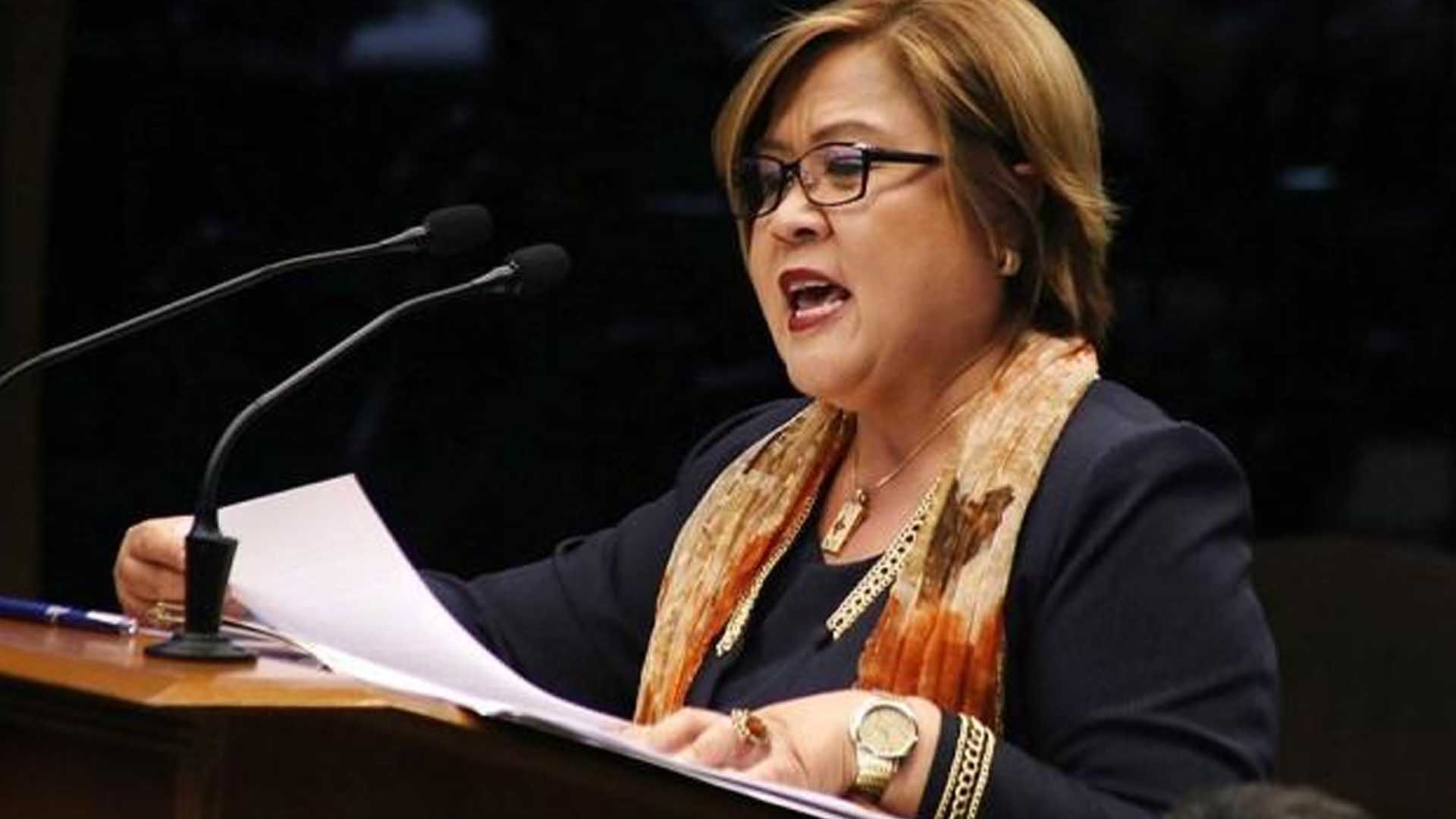Opposition Senator Leila M. de Lima has reintroduced a Senate measure granting “compassionate parole” or a medical parole to terminally-ill Persons Deprived of Liberty (PDLs) based on humanitarian or medical grounds.
In filing Senate Bill (SB) No.1146, De Lima said terminally-ill PDLs should have a chance to serve out their sentence under their families’ care or seek better medical care outside the correctional facilities as long as they will not be a threat to the safety of society.
“While it is admitted that we need to improve our healthcare services, including those in our jails and correctional facilities, we can also look into the policy of granting medical parole to those who truly deserve them,” she said.
“The grant of medical parole presupposes that the conditional release of a PDL will not constitute a threat to the safety of society,” she added.
Medical Parole, also known as compassionate parole, refers to the conditional release of a prisoner from a correctional institution on the grounds that he is suffering from a terminal illness or an incapacity that renders him incapable of managing his own affairs.
According to Ernesto Tamayo, hospital chief of the New Bilibid Prison (NBP) in Muntinlupa, the conditions in the country’s penitentiary have increased the mortality rate of inmates who contracted illness or diseases during their incarceration.
Of the NBP’s population of around 26,000, the mortality rate is 20 percent with most of the deaths occurring due to infectious diseases in overcrowded cells, official figures revealed.
The lady Senator from Bicol explained that the institutionalization of the medical parole will provide for a humane treatment of PDLs who are suffering from terminal illness or permanent incapacity.
“It also rationalizes the correctional practice by allowing the conditional release of PDLs who are no longer capable of serving their sentences within the correctional facilities due to their conditions,” she added.
De Lima, who chairs the Senate Social Justice, Welfare and Rural Development Committee, pointed out that her proposed measure details a mechanism for citizens and interested parties to oppose any application as a matter of check against any improvident or even fraudulent grant of medical parole.
Under SB 1146, any person may object, through the filing of a verified opposition, to the grant of medical parole on several gounds: The severity of an inmate’s disease does not qualify him for medical parole, the PDL’s release will constitute a threat to public safety, or the PDL is likely to commit an offense while on medical parole.
De Lima added that the measure allows the Board of Pardons and Parole (BPP) to “require as a condition of medical parole that the PDL agrees to periodic examinations and diagnoses at the PDL’s expense” with the examining physician expected to submit reports of each examination and diagnosis to the BPP.
This 18th Congress, De Lima filed bills on sweeping prison system reforms, logged as Senate Bills No. 180 and 181. These two measures both aim to help initiate comprehensive reforms in the country’s prison and correctional systems.






